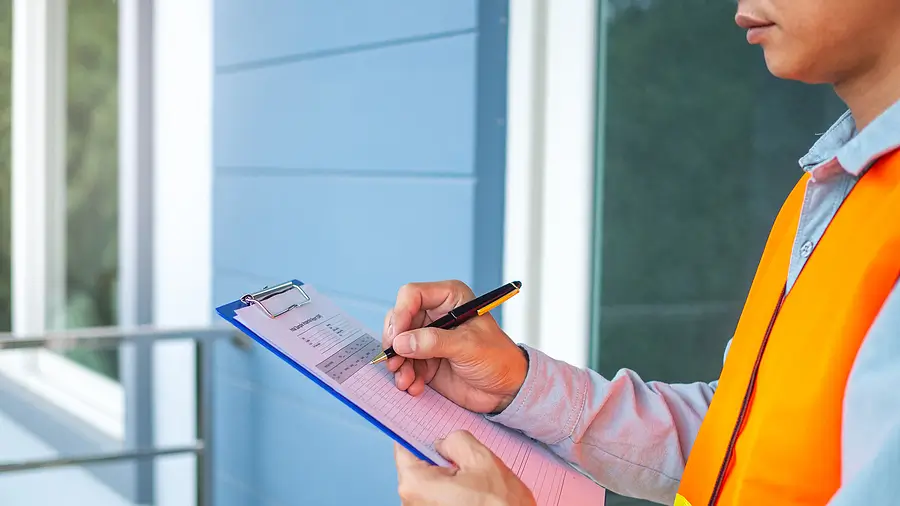Staying compliant with rental property inspection laws is important for landlords. Adhering to these local regulations helps prevent fines, ensures tenant safety, and promotes trust between property owners and tenants. Kansas City requires landlord inspection, from initial move-in assessments to periodic inspections throughout the lease. Here’s a detailed guide on how to meet Kansas City’s rental property inspection requirements and keep your properties in excellent condition.
Rental Property Inspections in Kansas City
Kansas City’s rental inspection laws are designed to hold landlords accountable for maintaining safe and healthy housing standards. Rental property inspections help ensure properties are free from hazards that may harm tenants or disrupt neighborhood quality. Knowing what’s involved in these inspections and how to perform them can make a huge difference in managing your rental properties.
Regular rental property inspections cover structural aspects, plumbing, electricity, and any potential safety risks. The city has specific requirements and scheduling expectations for property inspections, including annual, quarterly inspections, or as necessary, depending on the property type.
Why Compliance Matters in Rental Properties
Compliance with rental inspection laws is not only about avoiding fines but also about fostering a good landlord-tenant relationship. When tenants see their landlord proactively conducting property inspections and maintaining high standards, they are more likely to stay long-term. The inspection process helps protect the tenant’s security deposit by documenting the property’s condition at different stages, from move-in to move-out inspection.
As a landlord, understanding the local requirements is critical for compliance. Having a solid property inspection process in place will keep your rental property in top condition and avoid violations.
Types of Rental Property Inspections
Here are the different types to perform a rental property inspections:
Move-In Inspections
Before a tenant moves in, a thorough rental property inspection should be performed to document the condition of the rental unit. This inspection helps set a baseline, which is essential if there are any future disputes over the tenant’s security deposit.Routine Inspections
Landlords should conduct routine inspections either quarterly or biannually to ensure the property is being maintained according to lease terms. These property inspections can help spot issues early, preventing minor repairs from becoming expensive fixes.Move-Out Inspections
Move-out inspections take place once the tenant vacates. The purpose is to document any changes in the property’s condition and assess if any part of the tenant’s security deposit should be used for repairs.Annual or Government-Mandated Inspections
Kansas City may require annual rental property inspections as part of its compliance checks. These inspections ensure that rental properties adhere to city health and safety codes.
Steps to Ensure Successful Rental Property Inspection
Following these steps will help achieve a successful rental property inspection:
Familiarize Yourself with Local Rental Property Inspection Requirements
Start by learning about Kansas City’s specific rental inspection laws. Different property types may have unique requirements, so ensure you’re aware of the laws relevant to your rentals.Document Property Condition Thoroughly
Proper documentation is key during rental inspections. Take photos, videos, and written notes to provide a record of each property inspection. This documentation will be helpful in disputes over the tenant’s security deposit or if damage is discovered during the move-out inspection.Schedule Routine and Periodic Inspections
Regular quarterly inspections or routine inspections allow you to identify maintenance needs early on. Make sure these inspections are noted in the lease agreement so tenants are aware of the schedule and purpose.Use a Standardized Rental Inspection Checklist
A checklist is an invaluable tool for landlords. It ensures that no critical items are missed and that the rental property is fully evaluated. Be thorough with each rental inspection and assess areas like HVAC systems, plumbing, and electrical setups.Hire a Professional Property Manager to Conduct Inspections
Hiring a professional property manager is an excellent option for those who find it difficult to manage rental property inspections alone. Property managers in Kansas City understand compliance rules and can efficiently conduct inspections and handle any necessary follow-up repairs.
Protecting Tenant Security Deposits with Inspections
Documenting each property inspection benefits both the landlord and tenant, especially regarding the tenant’s security deposit. By performing rental property inspections at move-in and move-out, landlords can clearly assess any tenant-caused damage beyond normal wear and tear. This documentation can justify any charges against the tenant’s security deposit while providing transparent communication with tenants about deposit deductions.
If damages are found, having an inspection record can prevent disputes. Clear policies on the lease agreement and regular property inspections are important to managing tenant expectations and fostering positive relationships.
Common Inspection Issues and How to Address Them
During rental property inspections, it’s common to find issues that need attention.
Some of the typical problems identified during rental inspections include:
Plumbing Leaks: Regular inspections can reveal hidden plumbing issues before they escalate.
Structural Damage: Cracks, mold, or foundational issues are serious concerns that need immediate attention.
Appliance Malfunctions: Ensure all appliances are functional, as tenants rely on these amenities as part of their day-to-day lives.
Setting Up Rental Inspections in the Lease Agreement
The lease agreement is the primary document governing the landlord-tenant relationship. Outline the rental property inspection schedule, including quarterly inspections or routine inspections, to prevent misunderstandings. Including a clear inspection policy in the lease gives you the legal authority to enter the property as necessary while ensuring tenants understand the process.
Hiring a Professional Property Manager for Regular Inspections
Staying compliant with Kansas City’s rental property inspection laws not only protects you as a landlord but also ensures your tenants feel safe and satisfied. Regular property inspections, thorough documentation, and prompt maintenance address essential needs, helping you safeguard your investment while avoiding legal complications. To streamline this process, include a comprehensive inspection policy in your lease agreement and consider partnering with a property management company like Oz Accommodations to handle it all seamlessly!
As a trusted Kansas City property manager, we oversee every aspect of property inspections and rental inspection schedules, so you can feel confident your rentals stay in line with local regulations. Ready to learn more about how we can support you with rental property compliance? Explore our services page or contact us today!


